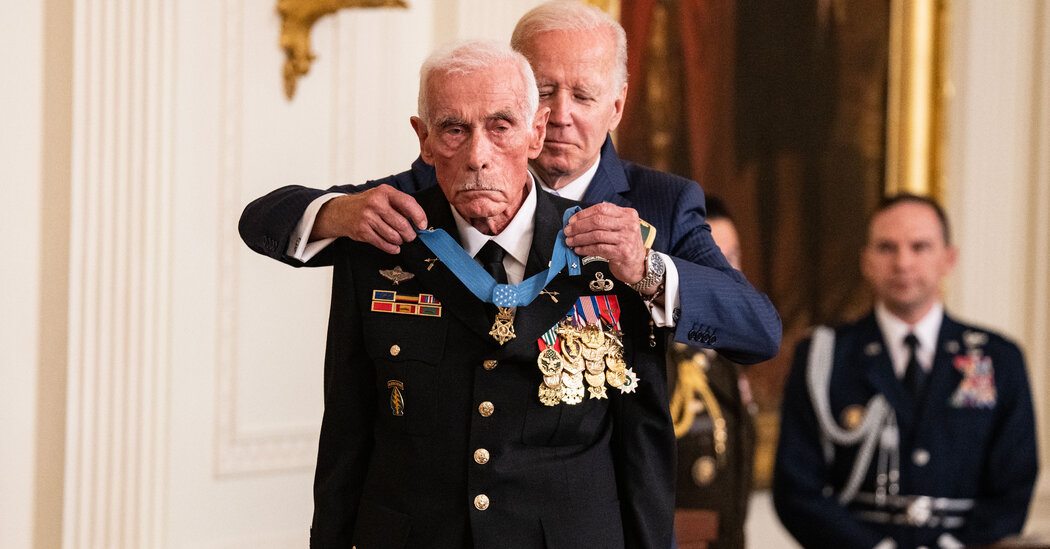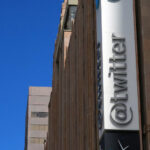
Dennis M. Fujii, an Army specialist, was a crew chief of a helicopter ambulance that was shot down in Laos in 1971, landing in the middle of a firefight. Rescue helicopters were unable to get to the wounded Mr. Fujii, who later waved off more attempts as too dangerous, Mr. Biden told the audience on Tuesday. He stayed to tend to other wounded soldiers for two days, and when the rescue helicopter was finally able to retrieve him, it too was shot down about four miles away, stranding him for two more days.
“Specialist Fujii downplayed his own contributions and honored the skills of the Allied Vietnamese troops he fought with, simply saying, I quote, ‘I like my job. I like to help other people who need help out there,’” Mr. Biden said after recounting his story. “It’s amazing.”
John J. Duffy, an Army major, repeatedly risked his life in 1972 to direct airstrikes against the enemy during an assault on the 11th Airborne Battalion, Mr. Biden said. The president said Mr. Duffy remained behind, fighting the enemy, as the base was overrun and was the last person to evacuate, saving one last soldier who was shot in the foot and had fallen out of a helicopter as it took off. Mr. Duffy jumped out and helped the soldier back onto the helicopter.
Mr. Biden said Mr. Duffy served three tours in Vietnam and later became a successful author, once being nominated for a Pulitzer Prize for his poetry.
“He is the definition of a warrior poet,” the president said.
Mr. Biden said the four awards on Tuesday were the result of a congressionally mandated review of the actions of Asian Americans, Native Americans and Pacific Islanders during the Korean and Vietnam wars.
“Honestly, it’s been a long journey to this day for those heroes and their families,” Mr. Biden said. “And more than 50 years have passed — 50 years — since the jungles of Vietnam where as young men these soldiers first proved their mettle.”




